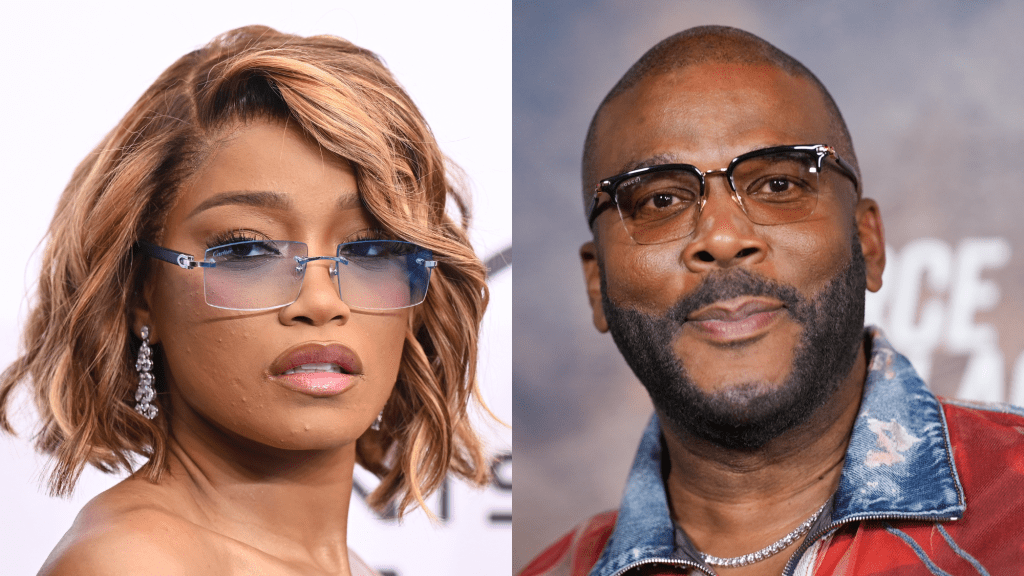Keke Palmer Defends Tyler Perry, Blames Systemic Issues for Limited Representation in Hollywood
In a recent episode of her podcast, “Baby, This Is Keke Palmer,” the actress doubled down on her defense of Tyler Perry, amid ongoing backlash against the renowned filmmaker. Perry has faced criticism for his portrayal of Black women in his films, with many arguing that they are often relegated to victimized or marginalized roles.
Perry himself has spoken out about the criticism, saying in an interview, “Don’t discount these people and say their stories don’t matter. Who are you to be able to say which Black story is important, or should be told? Get out of here with that bullsh*t.”
Palmer, who has been a vocal supporter of Perry, took to social media to defend him, writing, “The enemy isn’t Tyler, it’s the system that makes it hard for multiple Black artists to shine at one time.” She added, “Tyler is not the gatekeeper of all Black stories, he’s just one creative who broke through the system. Advocating for others to do the same is the fight, not hating Tyler for his work that many do love.”
Palmer also responded to a critic who suggested that Perry should hire more writers, saying that she believes Perry has “found a way to work in the system” and has employed many Black writers and crew members. She added, “Not just in front of the camera but behind. His set was the first set I ever saw a Black crew, so that gets my respect.”
Another Twitter user responded, saying that people give Perry “grace” as an excuse to stay stagnant and not grow as a filmmaker. Palmer fired back, saying, “I think it’s less about changing Tyler and more about uplifting and popularizing other work that we love. There is Issa Rae, Tracy Oliver, Justin Simien, Jordan Peele, Jeremy O’Harris, Janicza Bravo, Nia DaCosta etc.” She added, “He’s not the only Black creator creating and they all deserve the right to share their perspective.”
The debate highlights the ongoing issues of representation and systemic racism in the entertainment industry. While Perry’s work has been praised for its impact on Black audiences, his films have also faced criticism for perpetuating negative stereotypes and reinforcing harmful tropes. The conversation serves as a reminder that there is no one-size-fits-all solution to these complex issues, and that it’s crucial to continue elevating diverse voices and perspectives in the industry.
